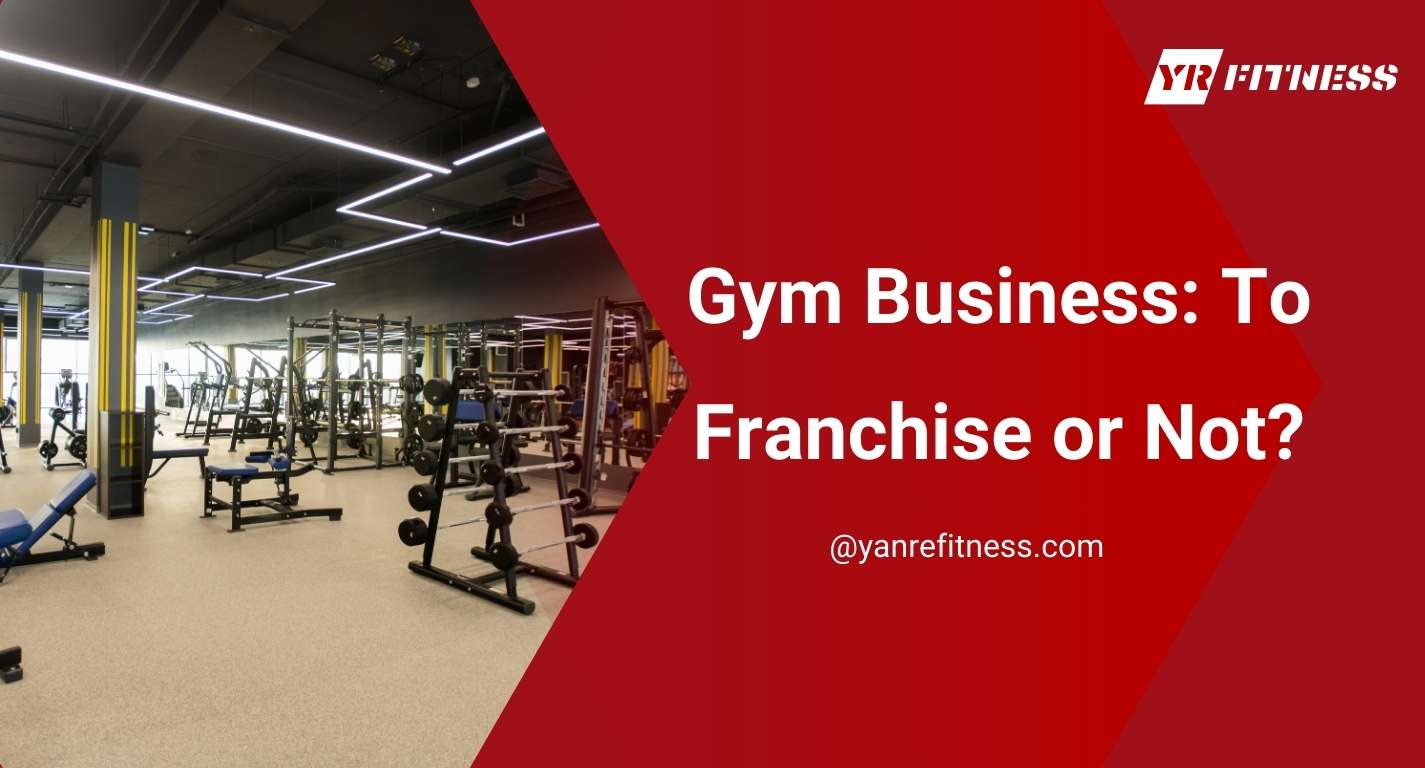Are you considering whether to franchise or start your own independent gym? The choice comes down to weighing several key factors that can make or break your business’s success.
As a gym owner or prospective gym owner, you’re faced with important decisions that will shape your future. With years of industry insights, we understand what it takes to succeed in the fitness business.
Both options—franchising or going independent—offer unique opportunities and challenges. Franchising provides a structured model with brand support while starting independently gives you complete control over your vision and operations.
In this guide, we’ll explore the financial considerations, business control, location factors, and more that will help you make an informed decision. You’ll also learn about the resources and support available to you in each option.
So let’s get started!
Table of Contents
1. Franchising a Gym
Franchising a gym involves entering into a business arrangement where the franchisee (the gym owner) operates under the name and systems of an established brand. For instance, this setup allows gym owners to use a proven business model that has already been successful in other locations. However, this support comes with costs, such as initial franchise fees and ongoing royalties. Partnering with a reputable commercial gym equipment manufacturer can further strengthen a franchise by ensuring access to high-quality equipment that aligns with the brand’s standards. Here are the benefits of franchising:
- Brand Recognition: Operating under a well-known brand helps attract members more quickly. People are more likely to trust a name they recognize, which can lead to faster growth.
- Operational Support: Franchises provide comprehensive support, including training and guidelines for running the business. As a matter of fact, this reduces the learning curve, especially for first-time gym owners.
- Marketing Assistance: Franchisors offer national and regional marketing campaigns that benefit all franchise locations. With 54% of customers believing companies need to transform their engagement methods according to Intelligent Bee, it’s crucial to continually evolve your approach.
- Lower Risk: Franchises come with a proven business model that has been tested in multiple locations. This reduces the overall risk of failure compared to starting a business from scratch.
Starting a franchise gym means aligning with brand standards for facility quality and equipment. YR Fitness offers commercial-grade machines that meet franchise requirements while delivering durability and performance. Contact us today to ensure your new franchise location is fully equipped for success.
2. Independent Gym Ownership
Independent gym ownership involves starting and running a gym without the backing of an established franchise, giving the owner complete control over every aspect of the business. For instance, this means that the gym owner is responsible for creating their own brand, developing marketing strategies, and handling operations such as equipment procurement and staffing. Here are the benefits of independent gym ownership:
- Creative Freedom: You have complete control over the look, feel, and identity of your gym. This allows you to tailor the experience to your unique vision and target audience.
- Flexibility in Operations: As an independent owner, you make all the decisions, from pricing to membership structures. This flexibility enables you to adapt quickly to market changes and member feedback.
- No Ongoing Fees: Unlike franchise owners, independent gym owners do not pay royalties or marketing fees. YR Fitness suggests that this allows for more financial control and the ability to reinvest directly into the business.
- Potential for Higher Rewards: While there is more risk, independent ownership offers the opportunity for greater financial rewards. On top of that, if your gym is successful, all profits are yours without having to share them with a franchisor.

Independent gym owners have the freedom to choose equipment that fits their unique vision and budget. YR Fitness provides versatile commercial equipment to help you build a distinctive brand experience from the ground up. Get in touch here to explore equipment tailored to your independent gym goals.
3. Franchise vs. Independent
Here’s a comparison between owning a franchise gym and an independent gym, highlighting the key differences across important factors:
Factor | Franchise Gym | Independent Gym |
Brand Recognition | Instant brand recognition, helping attract members quickly. | Must build brand from scratch, requiring time and effort to gain recognition. |
Operational Support | Franchisor provides training, business guidelines, and ongoing support. | Full responsibility for developing systems and procedures for all operations. |
Control | Limited control over decisions, must adhere to franchisor’s rules and standards. | Complete freedom to make all business decisions, including pricing and services. |
Costs | Requires upfront fees and ongoing royalties to the franchisor. | No royalties, but initial and operational costs are fully on the owner. |
Marketing | National and regional marketing handled by the franchisor. | Owner is responsible for creating and executing all marketing efforts. |
Risk | Lower risk due to proven business model. | Higher risk, but potential for greater reward if successful. |
Growth Potential | Easier to scale with multiple franchise locations. | Growth requires more personal effort and resources but offers full control. |
Financial Rewards | Profit is shared with franchisor through royalties. | All profits stay with the owner, leading to potentially higher returns. |
Whether you’re launching a franchise or an independent gym, choosing the right equipment is crucial for attracting and retaining members. YR Fitness supplies commercial gym solutions that fit both models, helping you balance quality and budget. Reach out today for expert guidance on equipping your facility.
4. Key Factors to Consider When Deciding Between Franchising or Not
When deciding between franchising a gym or starting an independent gym, it’s crucial to evaluate several technical factors that can impact the long-term success of your business. Here are the key factors to consider:
#1 Initial Investment and Capital Requirements
Franchising a gym typically involves higher initial capital requirements due to franchise fees, equipment mandates, and brand-specific build-outs. Independent gym owners have more flexibility in how they allocate their initial investment, as they aren’t restricted by agreements or brand mandates. However, the lack of an established framework means more time and money may need to be spent on creating a business plan.
#2 Legal and Regulatory Compliance
Franchise gyms come with pre-established legal agreements that dictate the terms of the business relationship. YR Fitness suggests that as an independent owner, you are solely responsible for ensuring your gym complies with local laws. Franchisors often assist with legal compliance, but independent owners must either navigate these areas alone or hire specialized legal consultants.
#3 Scalability and Expansion Potential
The scalability of a franchise gym is typically higher due to the franchisor’s support in opening additional locations. Independent gym owners face a more challenging path to scaling, as every new location requires creating systems from scratch and establishing new market strategies. However, independent owners retain full control over the growth trajectory and can choose when and how to expand without franchisor approval.
#4 Technology and Infrastructure Requirements
Independent gym owners have the freedom for customization to fit the specific needs of the gym but also introduces a higher level of complexity in ensuring all systems integrate seamlessly. On the other hand, franchises reduce the time spent on researching and testing technology solutions but come with less flexibility in adapting systems to unique business needs.

No matter which path you choose—franchise or independent—the foundation of a successful gym is reliable, high-quality equipment. YR Fitness can help you navigate equipment choices that align with your business plan and long-term vision. Connect with our team to discuss the best solutions for your new gym venture.
Conclusion
Deciding between franchising or starting an independent gym is a significant decision that impacts your business’s success. Each option has its own benefits, from the structured support of a franchise to the complete creative freedom of an independent gym. By considering several factors, you can determine which model best aligns with your business goals.
In conclusion, the right choice depends on your personal business vision, available resources, and willingness to take on risk. If you’re looking for reliable and durable equipment to power your fitness facility, YR Fitness is a great choice. Contact us today to learn how we can help elevate your gym’s operations.
Dive Deeper Into Our Resources
For some insightful reads, we’ve curated a list of recommended articles just for you:
- Gym Owners
- Gym Franchise
- In Which State Of The USA Are The Most Gyms Located?
- Where Do Gyms Buy Their Equipment?
Still haven’t found what you’re looking for? Don’t hesitate to contact us. We’re available around the clock to assist you.
Related articles:







-4.png)